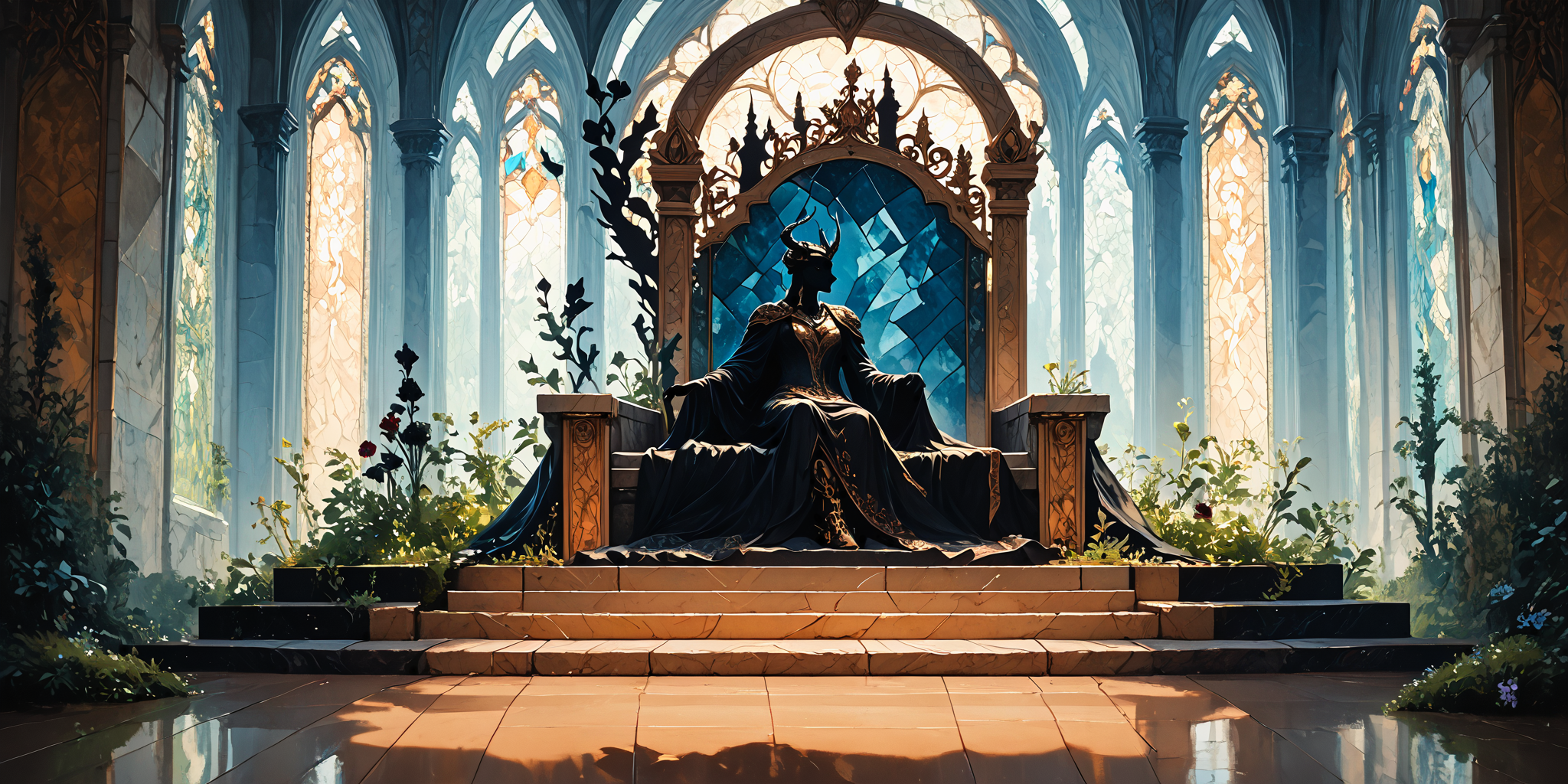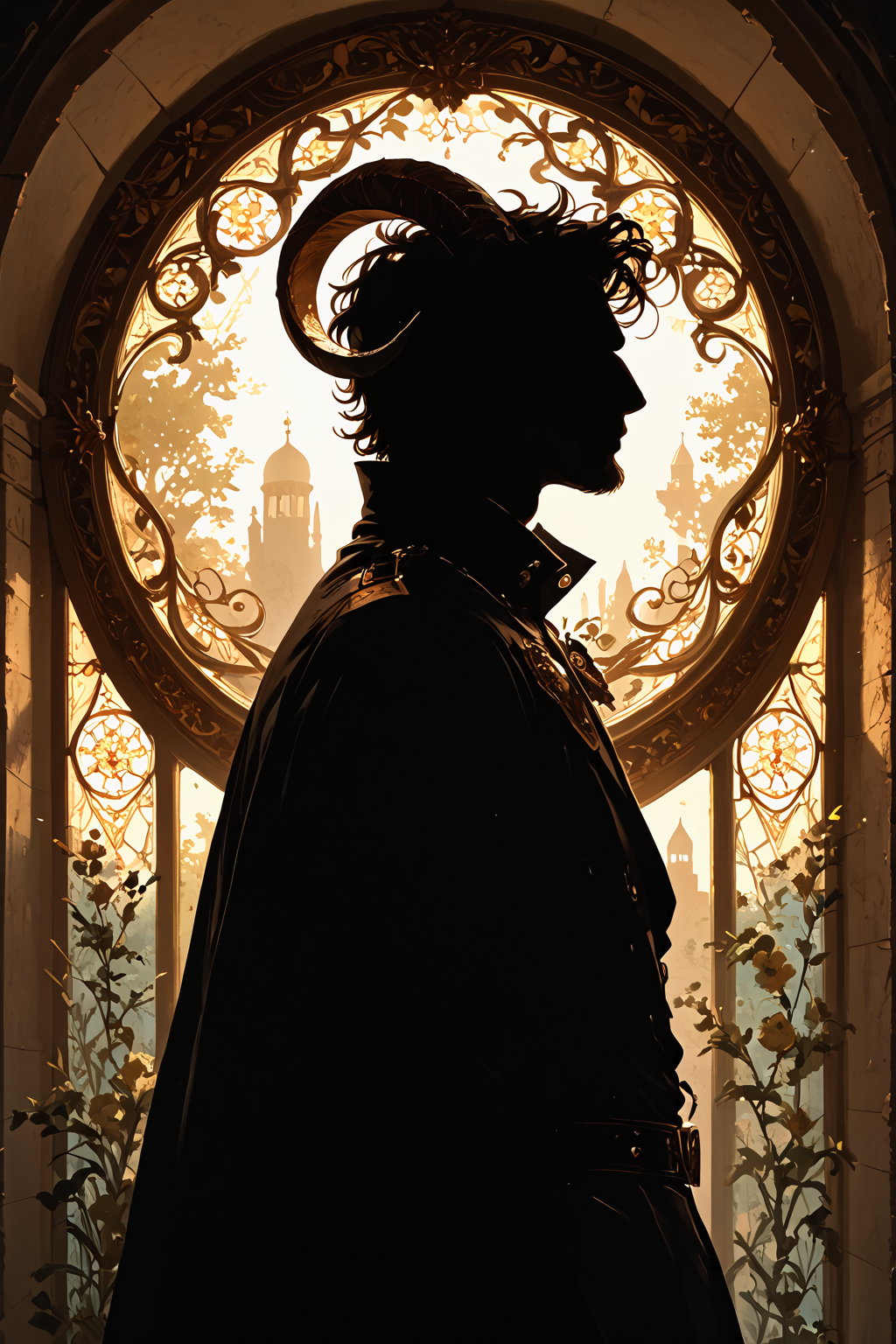Imperator
Defacto Ruler of Incaendium. Perhaps.
The Imperator is a role uniquely Incaendian - a granting of authority without responsibility, given for little reason beyond sheer personal power. For this reason, it is largely misunderstood outside of Incaendian Culture; even so, understanding the Imperator of a given age is often the most potent tool in unlocking the inconsistencies within the cultue of the Demons as a whole, including the sudden shifts in priorities, in trends, in fashions. This is no more evident than in the current era, where Incaendian culture is entirely dominated by the influence of the current Imperator... despite his relative lack of interest in a direct exercise of authority.
Overview
One of the more obtuse facets of Demon society is the institution called the Imperator. On the surface, this may appear to be the equivalent of an emperor - the central leader of a kingdom, wherein the Kingdom would be Incaendium itself.
However this interpretation, while understandable, isn't entirely accurate.
In reality, Imperator is a title and profession that is both undeniably real and technically nonexistent. It may have no responsibility or political influence attached, or it may make a person the most politically powerful person in Incaendium, and the one that carries the greatest weight of responsibility on their shoulders.
Because what truly defines the Imperator is the possession of the personal power to define how much responsibility and influence one wants, and to make that desire become real.
What Makes an Imperator?
The term "Imperator" refers to an absolute - a supreme - leader. In Incaendium, this can only mean one thing: the most powerful person in the Realm itself... or at least the most powerful one anyone knows about. It is a title won and not inherited - almost always seized from the hands of the previous holder through war or personal combat, and the pursuit of it has caused most of the major Intra-realm political shakeups: when an Imperator is challenged, Royal families take sides, family lines are extinguished, Exedis is practiced to an uncommon degree, and the Realm itself rarely emerges unchanged.
The Bartender King
In almost all cases, Imperators are also the Dominus Regas of their native Domain. This is because, of course - in theory, at least - the Dominus Regas represent the pinnacle of strength in Incaendium, each being the most powerful in their given realm.
However... this does not always need to be the case. Because power-based or otherwise, one cannot give authority to one who never seeks to grab it. If a person without a title - someone who had never bothered to challenge the Dominus Regas of their homeland, for example, were to somehow end up in a duel with the Imperator and win it, that person would then become the Imperator even if they had no political ambition whatsoever.
This has happened.
Rylan Mieks was a bartender in Marth in 18,255Y when a group of men came into his establishment to drink. They were rude, entitled, and abusive to the tavern girl, which irritated Rylan enough to have them removed. The group became incensed and resisted, ultimately causing a barroom brawl in which Rylan personally engaged with several of the men, including their apparent leader. The battle between Rylan and the anonymous bully escalated, ultimately destroying most of the building and resulting in Rylan forcing the other man to yield.
As one might expect by context, that man turned out to be Jorgrien Verdraeth, Dominus Regas of Marth and Imperator of Incaendium.
Rylan refused to displace the Verdraeth family and take a position as Dominus Regas himself - he had no interest in political power, after all. This left the shamed and broken Jorgrien as the impotent lord of a Domain that no longer respected him.
It also left Rylan as an Imperator who spent the majority of this time serving mixed drinks.
His "reign" lasted for 56 years until he was defeated in personal combat by Astheri Bornbach.
Many believe he lost that fight on purpose so that people would leave him alone.
Imperator is not an official position akin to that of an Emperor. One will not find it in a list of titles, at least not one that deals in legal titles and professions. Instead, it is a marker of de facto leadership - leadership conferred by due to Incaendian Culture's expectation that all people defer to those of greater strength than themselves.
That is to say an Imperator is not a true emperor... and yet, because they are the strongest, all others will bow to their whims regardless.
This makes sense; certainly in a culture that cares more about power scaling than anything else, being the strongest of them all carries with it limitless prestige. However, while great personal power does convey access to political power, it doesn't inherently bestow such power. It does not necessarily convey access to, or even interest in, political or social influence or power.
All of this means that the position is what the one who holds it decides that it is.
If they choose to rule as an emperor, other rulers will defer to their greater strength.
If they choose to resume life as it was before they won the title, they are free to do that as well.
Should they desire to simply have veto power over the movements of society but remain otherwise uninvolved in other people's affairs, that is also accepted by the populace.
The side effect of this, of course, is that the amount of power and influence wielded by a given Imperator is largely a reflection of their individual personality. Thus, the most active Imperators are often the worst possible people to hold power - authoritarians who wish to control the lives of people across Incaendium with an iron fist.
Of course, that is also the kind of Imperator most likely to be challenged.
Models of Imperatorship
While certainly one holding the position of Imperator can construct their own set of authorities and responsibilities as they prefer, generally a given Imperator's approach will fall under one of a few basic models. Bear in mind that these are models used in their approach to Imperatorship. That does not necessarily reflect their approach to their own Domain (assuming they have one).
For example, many a lenient and/or politically disinterested Imperator ruled as a full authoritarian in their own domain.
Rulership as a true Emperor. Under this Imperator, all Incaendian Domains become, in essence, territories under the control of a central authority. The culture begins to adhere to the preferences of the Imperator, sparking sometimes significant shifts in attitude and priorities.
In the most extreme cases, each Dominus Regas is expected to provide reports of major decisions and submit them to approval or denial by the Imperator. Because this form of reign is so stifling for the many "Kings" of Incaendium, it is the most frequently challenged and thus often the shortest.
Examples Abrazus Zozket was a full authority Imperator, even going out of his way to attempt to squash the confidence and independence of up-and-coming powers before they could become a threat to his authority. This backfired when he attempted a power play against Samael Asther, who had more friends than he did.A hybrid-inclined Imperator is largely uninvolved in the day to day functioning of each individual Domain, but does make a point of setting larger "policies" across the Realm. Again, bearing in mind that this not an official position, they cannot simply write a Realmwide law. But they can "make it known" so to speak.
Often this takes the form of a certain set of issues or powers that are known to be of importance to the Imperator, leading local rulers to "send" those issues to the Imperator's home domain for their "input."
Examples Bellos Nykythan was not much of a micro-manager. He did not believe that an Imperator should be a Realm-wide Dominus Regas, nor did he especially believe that a Dominus Regas must necessarily be a micromanaging authoritarian. Instead, he left people to their devices, only stepping in when he thought a decision was especially egregious or laudable.This could also be called the a disconnected or silent sovereign. This is an approach where the Imperator goes about their business (most likely ruling their own specific Domain), but is willing to step in to decide conflicts or make judgments when asked to do so by the local authorities. This makes them less active rulers than last resorts - the final authority that you appeal to when all else fails.
This is generally the approach least likely to invoke resentment.
Unusually strong Imperators often adhere to this, a model that implies some confidence and ability to let go of the impulse to control for potential rivals.
Examples Indeed, the two strongest Imperators in history, Laelea Kanete and Samael Asther, have both been Observers more than active rulers (outside their own Domain), though they have approached the role very differently.The rarest approach of all, this is an Imperator with absolutely no interest whatsoever in actually ruling or even acknowledging their potential authority.
Examples The most well known, and arguably the only legitimately accurate, case of this was of course Rylan Mieks, the Bartender who accidentally became King.



Comments